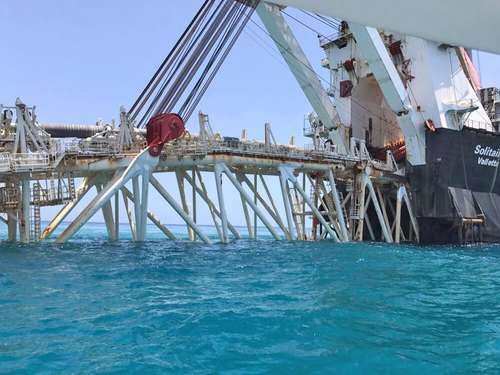The purchase of natural gas from the United States and its transportation through gas pipelines has become a problem for Mexico instead of an opportunity. This is because penalties are still being paid for non-compliance with contracts. According to Fabio Barbosa, an academic at the UNAM Economic Research Institute, this problem has multiplied with the energy reform of the last six-year term.
Although the trade of fuel with the United States has existed since the time of Porfirio Díaz, its massification for generating electricity is a more recent development. In 2019, the volume of purchases exceeded Mexico’s domestic production, reaching over 8 billion cubic feet per day. This situation has led to empty gas pipelines within the country.
Barbosa documents that natural gas imports by the Federal Electricity Commission (CFE) and private firms began modestly during the government of Ernesto Zedillo. However, a significant change occurred in 2015, two years after the energy reform promoted by Enrique Peña Nieto, which led to an abundance of shale oil and gas in the market. This resulted in Mexico becoming the main destination for US gas exports.
The overproduction of gas in Texas, where the main fields that supply Mexico are located, led to larger volumes being burned than permitted by US regulations. The solution to the overproduction was to increase exports to Mexico, but the cost of gas pipelines to facilitate these exports became a contentious issue. This led to the Mexican government bearing a large percentage of these costs through what Barbosa calls “leonine contracts.”
These contracts have resulted in exaggerated gas purchases and penalties for non-compliance which cause daily losses to Mexico. The Ministry of Energy (Sener) stated that the CFE was facing significant penalties for non-compliance with the transportation of gas. These contracts have been a significant financial burden, leading to calls for renegotiation during the current administration.
Moving forward, Barbosa suggests that Mexico focus on reducing gas imports and explore alternative energy sources like solar and wind power. By avoiding fracking, the country can reduce the environmental impact of its energy production and safeguard agricultural land and water resources. Overall, there is a need to rethink the country’s energy strategy to reduce reliance on gas imports and promote sustainable energy production.
